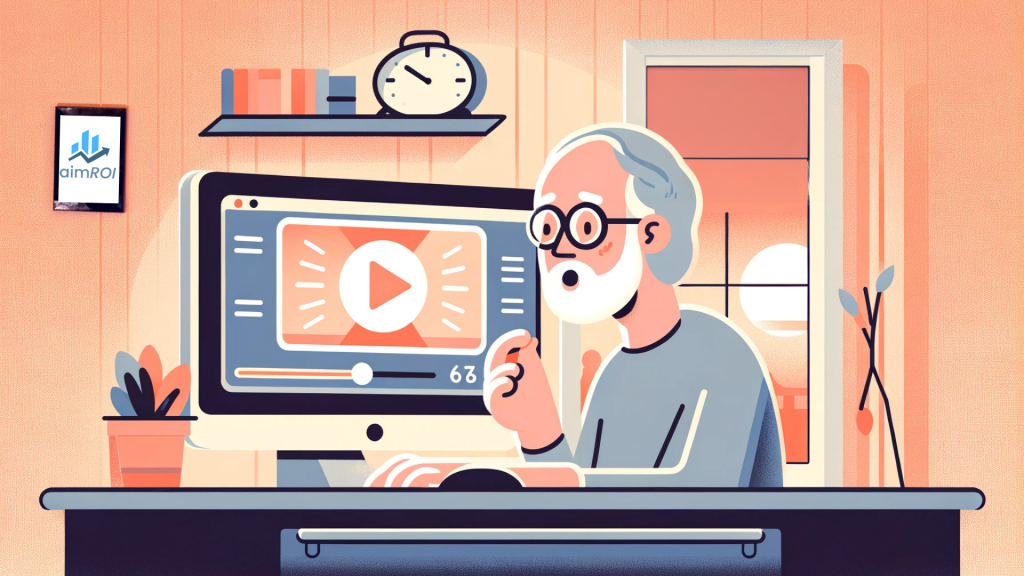It’s been a year since I discovered OpenAI, quickly moving from basic to advanced prompts. The swift, intelligent responses felt like chatting with a genius, instantly showing me how much the world was set to change.
In this short time, giants like Google, Microsoft, and Nvidia have led a boom in AI, expanding its reach from mere conversations to creating images and critiquing work.
The innovation hasn’t just continued; it’s accelerated, impacting industries like movies, games, and music.
Picture this: You’re running a major video game production company, with a legacy stretching over three decades. Yet, despite your storied past, the future looks uncertain.
The gaming landscape is shifting; players yearn for more, costs are skyrocketing, and your profit margins are thinning. But then, a light at the end of the tunnel – AI is about to revolutionize your world.
Suddenly, the idea of gamers describing their dream game and AI bringing it to life in seconds isn’t just possible; it’s on the horizon. That might seem fantastical, something that could happen in the next 50 or 100 years.
Think again.
We’re actually incredibly close to that future. The video game companies aren’t the only ones scrambling to adapt. Right now, movie and music studios are as well.
Technology is already here
If you’ve been following the latest technology news, you must have seen all of the incredible demos coming from OpenAI’s new text-to-video product, Sora and Google’s Genie, creating playable worlds from mere sketches.
This isn’t just about easing the game development process; it’s about redefining creativity itself. With products from companies like ElevenLabs, even voices and music can be AI-generated. All of this magic happens in minutes, not years, and without the need for massive teams or budgets!
Take Tyler Perry’s reaction as a case in point. According to Hollywood Reporter, upon witnessing the capabilities of AI through Sora, he put an $800 million studio expansion on hold.
Perry saw the writing on the wall: the future of entertainment lies in AI, and jobs as we know them are at stake.
This revelation isn’t just a pause for thought; it’s a full-stop moment for the film and television industry, prompting a rethink of how productions are made. AI’s role is expanding beyond the writer’s room, affecting everything from scriptwriting to virtual production.
The idea of AI-assisted scriptwriting and creating movie scenes without physical sets is no longer futuristic – it’s happening now. This shift is revolutionizing storytelling, making it more accessible and versatile than ever before.
AI impact in music
AI isn’t just transforming visuals; it’s also impacting a new era in music. Automated composition tools are crafting soundtracks tailored to listener preferences, and AI mastering is refining tracks to perfection.
Take Suno.ai as an example. With Suno, anyone from professional musicians to beginners can easily create detailed music by just selecting styles, moods, and instruments. The AI then takes over, quickly producing complete tracks ready for listening.
Check this music sample I generated with with Suno by simply describing what i wanted the music about…
AI Impact in gaming
Now lets take Google’s Genie, an AI driven technology that is setting new benchmarks in game development. Unlike traditional game platforms that require detailed coding, complex design work, and extensive development teams, Genie simplifies the entire process, making game creation accessible with just simple instructions.
Here’s how Genie is changing the game with its innovative approach:
- From Sketch to Playable World: Genie transforms simple sketches into detailed, interactive game worlds without coding.
- Understanding Through AI: It uses AI to analyze images, identifying elements and generating game mechanics automatically.
- Instantaneous Creation: Development time is reduced to minutes, enabling rapid prototyping and quick iterations.
I am really excited to reveal what @GoogleDeepMind's Open Endedness Team has been up to 🚀. We introduce Genie 🧞, a foundation world model trained exclusively from Internet videos that can generate an endless variety of action-controllable 2D worlds given image prompts. pic.twitter.com/TnQ8uv81wc
— Tim Rocktäschel (@_rockt) February 26, 2024
So, how it can potentially work together?
1. Companies like Open AI’s Sora kick things off by creating video simulations from textual descriptions.
2. Then, Google’s Genie steps in, using those simulations to craft video games just by describing them.
3. Suno or ElevenLabs and similar firms provide the soundscape, wrapping the entire experience in aural realism.
This streamlined, AI-driven process is reshaping the creative landscape, making it possible to produce content faster, cheaper, and with fewer hands on deck.
Open AI’s Sora Example Video with ElevenLabs sound effects
My Thoughts
I am personally super excited about the technology and the speed at which it’s moving!
Now, most of us will have access to tools to express ourselves in any way we see fit, whether it’s a movie, music, or even a game. Budgets or super hard skills will no longer be barriers.
It’s about democratizing creativity. All we would need is creativity, passion, and a spark of imagination to bring our wildest dreams to life.
Vladimir
This post was inspired by https://www.youtube.com/watch?v=NtScEI9__X0

